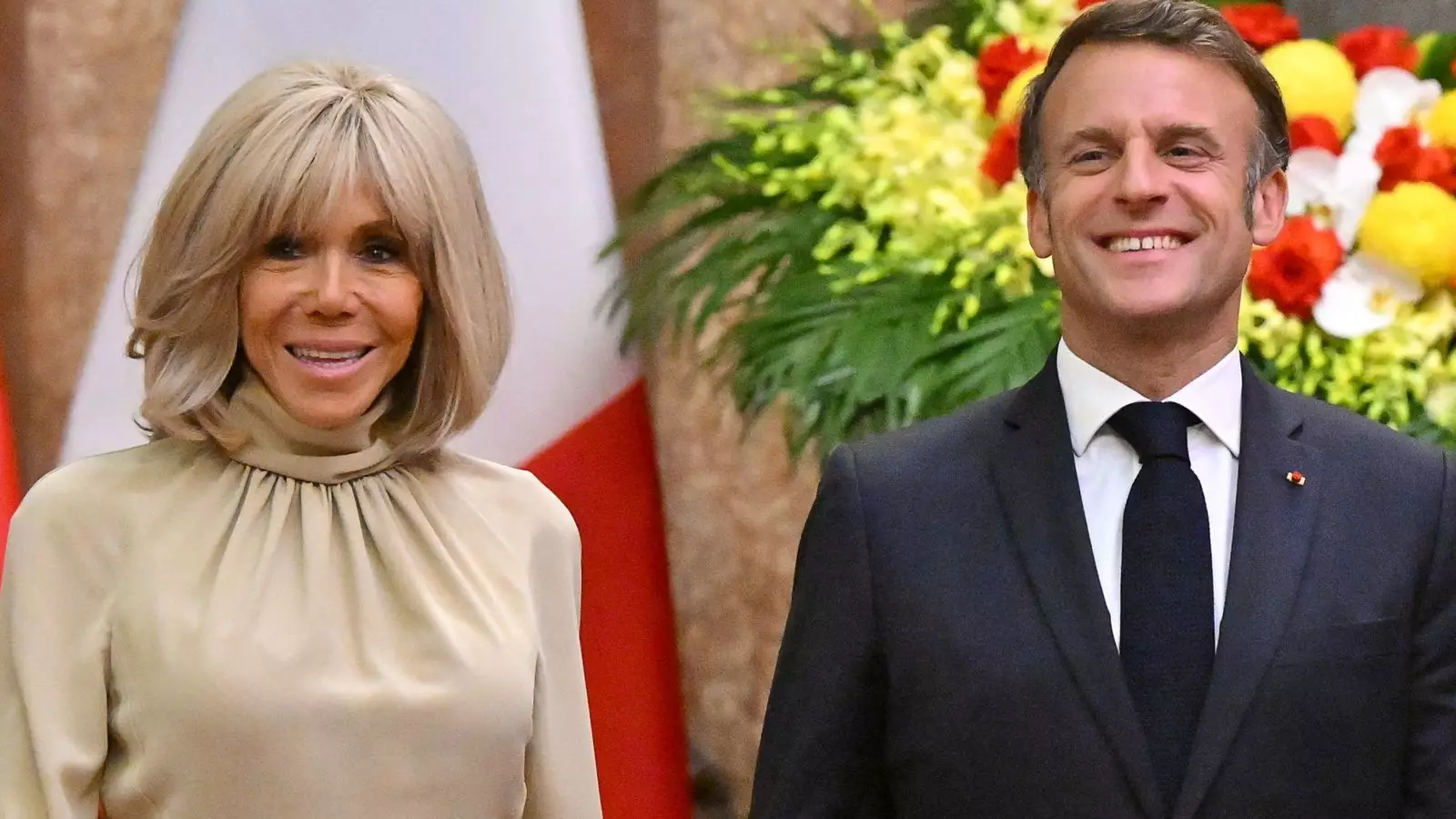The upcoming visit of French President Emmanuel Macron to Windsor Castle marks a conspicuous departure from centuries-old diplomatic rituals. Traditionally, state visits in the UK have centered around Buckingham Palace, a symbol of monarchy’s grandeur and continuity. Yet, this time, a deliberate shift to Windsor signals an effort to reinvent royal diplomacy—less about formality, more about personal connection and historical significance. This unorthodox choice prompts questions: Is the royal family embracing a modern approach to diplomacy, or is it undermining established regal decorum?
What stands out most is the striking personal involvement of the Prince and Princess of Wales, who are notably making an effort to meet and escort the Macron couple from RAF Northolt, rather than waiting passively at royal residence gates. This personal touch could be interpreted as an attempt to humanize the diplomacy; however, it raises concerns about diluting the solemnity of state protocol. Are we witnessing an erosion of the royal image—replacing stiff ceremony with more intimate gestures? Or, more cynically, is this a publicity stunt aimed at modernizing an outdated institution in the eyes of a changing society?
Shifting Venues and Reimagined Rituals: A Calculated Move
The decision to hold the main events on Windsor’s streets, including a bespoke royal dais on Datchet Road and a carriage procession through the town, signifies an intent to showcase the monarchy’s relevance within local communities. The choice of Windsor—an emblem of royal history and tradition—rather than the grandeur of Buckingham Palace, underscores a desire to blend tradition with accessibility. This approach could foster a sense of intimacy and immediacy, making state diplomacy more relatable.
However, this move also invites skepticism. Is it just a strategic recalibration to adapt to a more media-driven, image-conscious era? Windsor’s picturesque backdrop offers aesthetic appeal and historical gravitas, yet it could be perceived as a trivialization of a pageant that historically symbolizes national unity and global prestige. Does this shift genuinely serve diplomatic interests, or merely reflect a media-savvy PR exercise designed to generate positive coverage amid a time of widespread unpredictable geopolitical turbulence?
What’s Missing? The Question of Substance
While grand gestures of personal engagement—the viewing of treasured royal artifacts, reminiscing about gifts exchanged between monarchs, and private visits to the Queen’s tomb—add emotional depth, questions about substantive diplomacy remain. Are these ceremonies superficial displays designed to project unity and warmth, or do they foster meaningful dialogue with tangible political results?
In the UK, monarchy-backed diplomacy is often criticized for being more symbolic than strategic. The Macron visit, while rich in tradition and intimate moments, could be dismissed as an elaborate dress rehearsal for future negotiations. As the world faces pressing issues like climate change, security threats, and post-Brexit economic challenges, can such ceremonial moments truly translate into impactful policies? Or will they remain charming relics of a bygone era—a nostalgic nod to imperial soft power that needs to be renewed?
The Personal Touch: Genuine or Calculated?
The visit’s highlight—the Macron couple paying respects to Queen Elizabeth II and touring Windsor’s gardens—comes across as a nuanced gesture. It suggests a recognition of history and heritage, yet it could also be a calculated attempt to strengthen personal bonds, which many see as more influential than formal treaties these days.
The royal family’s willingness to embrace these intimate traditions signals an understanding that soft power, rooted in personal relationships and cultural symbolism, remains vital in diplomacy. But critics might argue that a focus on personal connections risks overshadowing the pragmatic, policy-driven aspects of international relations. Is this a wise recalibration, or a superficial distraction from deeper geopolitical issues?
The Future of Royal Diplomacy: Politicized or Pragmatic?
As global politics become increasingly polarized, the monarchy’s role in diplomacy is under closer scrutiny. Large-scale ceremonial events like Macron’s visit symbolize a compelling narrative of unity, stability, and tradition. Yet, the shifting landscape raises fundamental questions: Should the royal family adapt its diplomacy to an era craving authenticity and transparency? Or does this adaptation threaten to diminish the monarchy’s dignity and credibility?
The unique setting—hosting the French president at Windsor, conducting private memorial visits, and choosing unconventional venues—embodies a pragmatic approach, attempting to keep royal diplomacy relevant. But in doing so, does the monarchy risk becoming too personalized, too informal, and ultimately less respected? The balance between maintaining tradition and embracing modernity remains delicate, and Macron’s visit is merely a testing ground for this ongoing evolution.

Leave a Reply